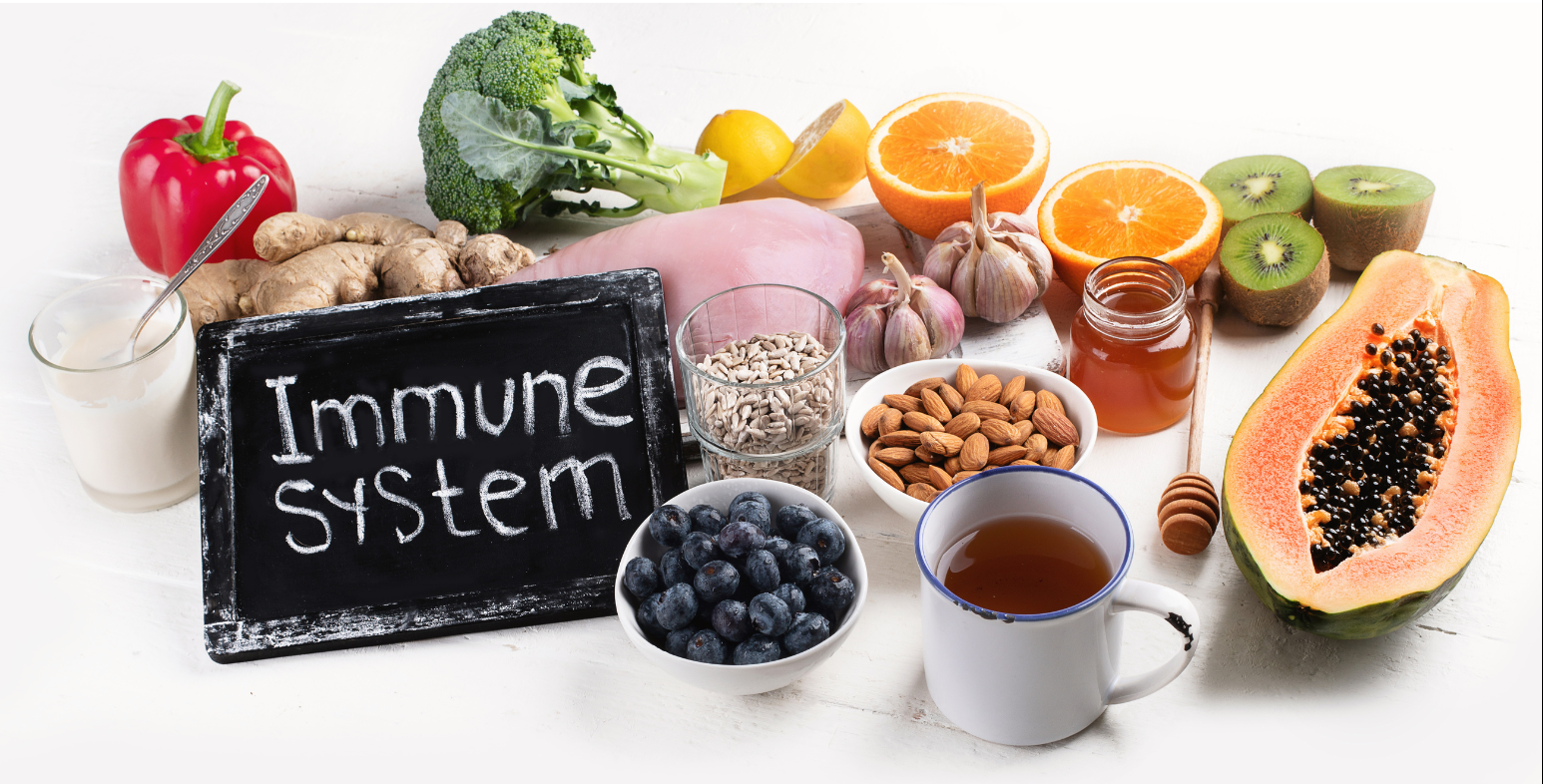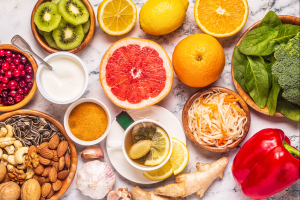Athletes should follow these 7 Steps to build immunity and prevent colds this season. For an athlete, being sick means missed practices, missed competitions, and lower performance. In fact,
Illness is the most common cause of missed practice.
For athletes, maintaining optimal health is crucial for sports performance. A key factor to stay healthy over winter is a strong immune system. If you are an athlete, follow these 7 steps to build immunity and prevent colds this winter.
1. Prevent the Spread of Germs
Viral and bacterial infections spread quickly between teammates. It can be difficult to avoid germs when teammates train together. In fact, colds are contagious before anyone feels symptoms. Athletes should practice these habits to prevent the spread of illness to their teammates:
- Wash your hands often (for at least 20 seconds).
- Avoid touching your eyes, nose and mouth.
- Maintain a safe distance from people who are sick.
Athletes can also build immunity by managing their training schedule, sleep and diet.
2. Train Smarter, not Harder
Training at both high volume and high intensity can lower your immunity due to the release of the stress hormones during intense exercise. A better strategy to avoid weakening the immune system might be replacing overly long training sessions with more frequent spike sessions. An immunology researcher, Dr. David Nieman, recommended the following strategy: Run less than 60 miles a week, mostly at low intensity (75% of max heart rate), for less than 60 minutes at a time.
The lesson here is not to burn yourself out.
- Take at least 1 rest day per week.
- Maintain a lower intensity (zone 2-3) for longer training sessions.
- Keep the high intensity sessions shorter and under an hour.
3.The Importance of Sleep
Sleep is a major factor in repairing and rebuilding our immune system and muscles. Lack of sleep weakens immunity, making an athlete more susceptible to illnesses and infection. During sleep, the body produces antibodies, the immune cells that protect the body from infection and inflammation. The optimal amount of sleep for teenagers to bolster their immune system is 9 – 10 hours of sleep each night.
Teens need 9-10 hours of sleep a night.
Fewer than 6 hours of sleep a night can quadruple your risk of catching a cold.
4. Recovery Nutrition
The body’s immune function drops for a few hours after exercise, making athletes susceptible to getting sick after a hard workout. A recent scientific review called the Recovery of the Immune System after Exercise explained that the most effective way to reverse this immune response is by eating carbohydrates before, during and after exercise. In fact,
Eating carbs resists the drop in immunity that happens after heavy training.
Low energy availability or restricting energy intake can increase the levels of stress hormones. An increased level of stress hormones in the body can lead to inflammation and suppress immune cells.
Not eating enough weakens your immune system.
Remember that recovery nutrition can help strengthen immunity. The immune system needs energy (glucose) to make immune cells. Recovery snacks that include carbohydrates give the immune system the energy it needs to fight off infection.
Have a high carb recovery snack to boost your immunity after training.

For examples of recovery snacks, see my blog post called Ten Steps to Gain Muscle.
5. Eat the Rainbow
A balanced diet, rich in fruits, vegetables, lean proteins whole grains provides the necessary nutrients for the immune system. A variety of fruit and vegetables which contains a lot of different colours will help meet vitamin and mineral requirements. Vitamins and minerals are needed to build a strong immune system as they are used in many biochemical reactions in the body, including those involved in immune response.
Which foods strengthen my immune system?
Deficiencies of certain nutrients can weaken your immune system, such as iron, zinc and vitamin C. Ensure you’re consuming plenty of foods rich in vitamins A, C and E, zinc, iron and magnesium – nutrients that are vital to the functioning of the immune system. Food sources include fresh fruit, vegetables, whole grains, lean proteins, nuts and seeds, while limiting highly processed foods.
Foods that Boost Immunity:
- berries, apples, cherries
- avocado, olives, nuts, seeds
- bell peppers, corn, leafy greens, garlic
Do I need to supplement Vitamin C?
Vitamin C is a vital antioxidant that plays a crucial role in maintaining the body tissues and strengthening the immune system. For athletes, vitamin C can help to reduce the damage caused by free radicals produced during intense physical exercise. This can help to reduce muscle soreness and speed up the recovery process. If an athlete eats a healthy balanced diet, they shouldn’t need to supplement vitamin C.
An athlete needs about 90mg vitamin C a day, which is found in a large orange.
The safe upper limit of vitamin C intake is 2,000mg/day; any more than this may cause some tummy upset.
6. Take a Vitamin D supplement
Vitamin D is an essential fat-soluble vitamin that influences immunity and has anti-inflammatory properties in the body. There is some vitamin D in food sources such as oily fish, cod liver oil, red meat, fortified cereals and egg yolks. Canada is too far from the equator to convert sun rays into vitamin D in our skin. Therefore, many Canadians are deficient in vitamin D, in fact 32% of Canadians have low vitamin D levels even in the summer. Some people think ‘I get enough sun exposure so I’ll be fine’, but in fact,
40% of Canadians have low vitamin D levels in winter.
All Canadians should take 1000 IU vitamin D daily all year round. Note that the maximum safe dose is 4000 IU vitamin D per day.
All Athletes should take 1000 IU vitamin D daily.
7. Consume Prebiotics for Gut Health
The gut is made of up trillions of microorganisms which make up your gut microbiome. Your gut’s microbiome produces billions of ‘good’ bacteria. These ‘good bacteria’ play a key role in the body’s immune response to infection and maintaining health. In fact, 80% of immune cells live in the gut. The best way to increase the population of ‘good bacteria’ in your gut is by eating a wide range of plant-based foods, which are rich in prebiotic fibre. Eating a Mediterranean-style diet with plenty of fruit, vegetables, pulses, nuts, seeds and whole grains has been shown to improve the diversity of gut microbes and reduce inflammation.
Top tip: Frozen fruit and vegetables are more nutritious and fresher than out of season imported produce!
What are Prebiotics?
Prebiotics are a group of nutrients that are degraded by gut microbiome. They feed the ‘friendly’ good bacteria. This is different from probiotics, which are found in fermented foods and yogurt. Prebiotics have a lasting impact on your gut health, compared to probiotics. This is because the good bacteria in probiotics often have trouble colonizing and growing in your gut. Prebiotics are a better way to grow your good bacteria because they feed the existing bacteria and help them grow.
Sources of prebiotics:
- Garlic
- Onions
- Leeks
- Asparagus
- Bananas.












One Comment